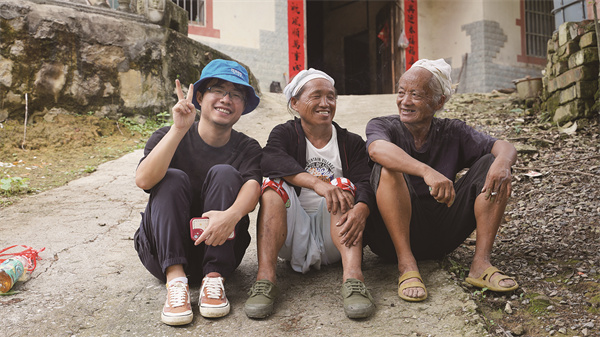Voices from the fields


Zhao recalls a memorable moment while filming in a sugarcane field in Guangxi Zhuang autonomous region, when a local woman invited him to help cut the sugarcane.
"I was surprised," Zhao said. "When someone invites you to join their work, it's a genuine sign of recognition and acceptance."
It is this sense of connection that Zhao cherishes most in his work. Over the past five years, he has interviewed countless farmers, many of whom have become lasting friends. He keeps in touch by sending holiday greetings and visiting their villages whenever he passes through.
"In cities, forming these kinds of relationships with strangers is nearly impossible," Zhao said. "Concrete and steel don't just separate us physically — they create psychological barriers as well."
Zhao has also built a strong bond with his audience. For urban viewers, his videos offer a rare glimpse of life outside the city. For those who grew up in the countryside but now work in cities, his documentaries evoke a sense of nostalgia and a connection to home.
"I want young people working in cities to see what their hometowns are like now," Zhao said. "If my work can raise awareness of rural development and contribute, even in a small way, that would be truly meaningful."
Zhao's videos explore a range of issues affecting rural communities, including youth migration, the pension system in rural areas, and the education of left-behind children.
One of his most popular videos, released in July, has drawn over 973,000 views. It focuses on the condition of 70 Hope Schools across Anhui, Hubei, Jiangxi, Guangdong, and Guangxi.




































